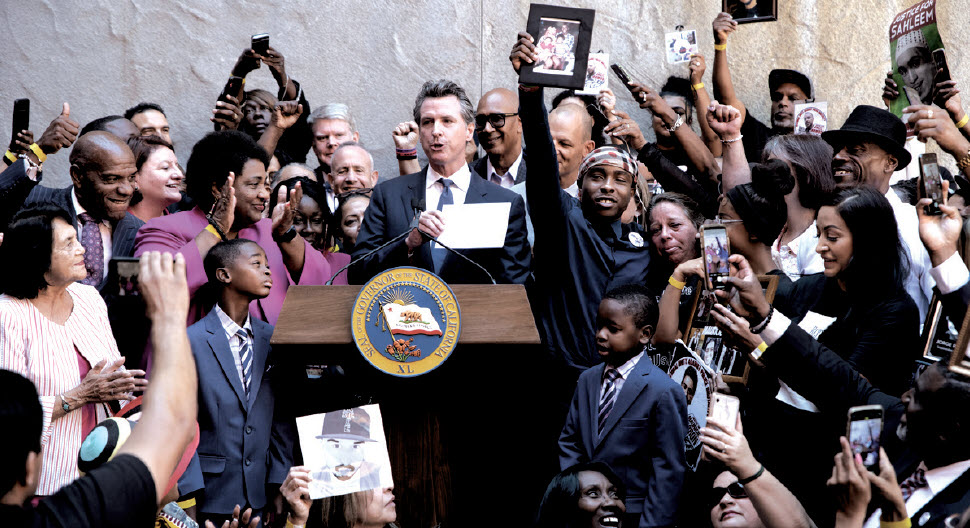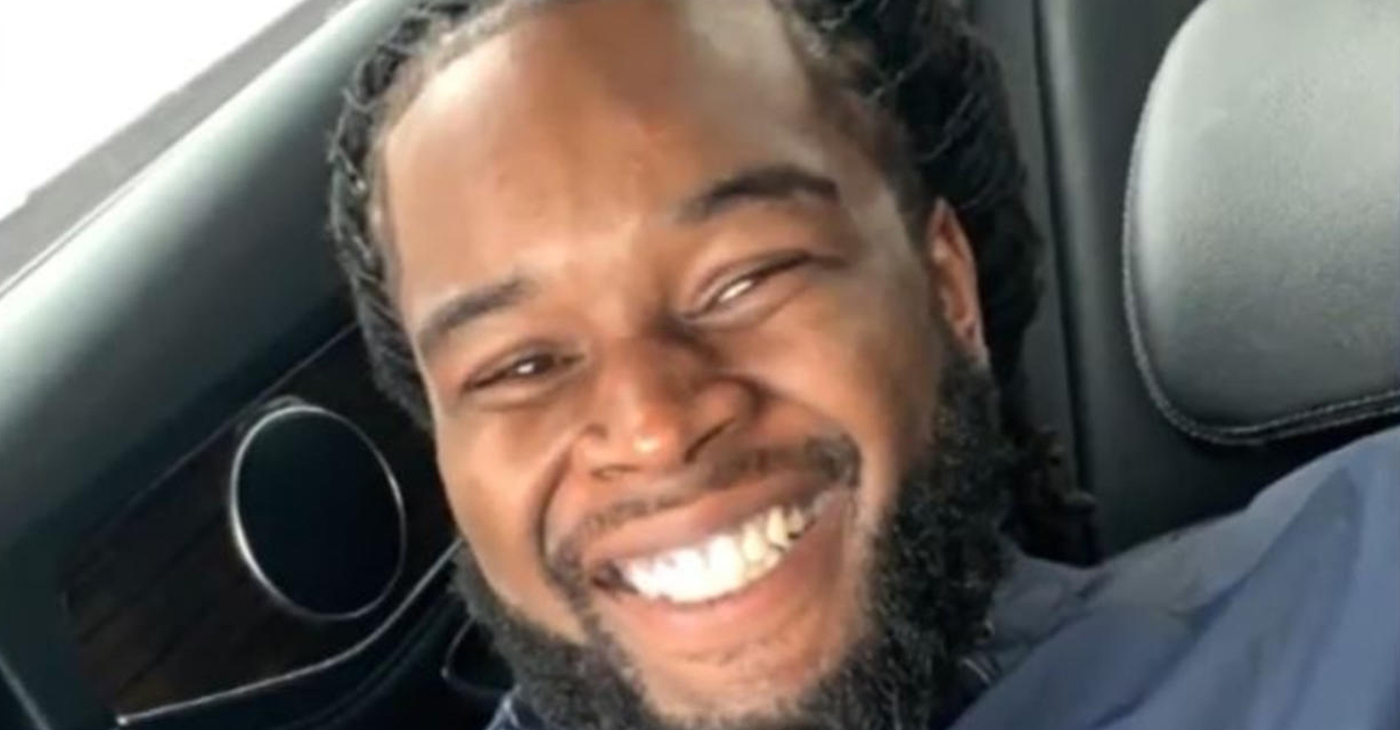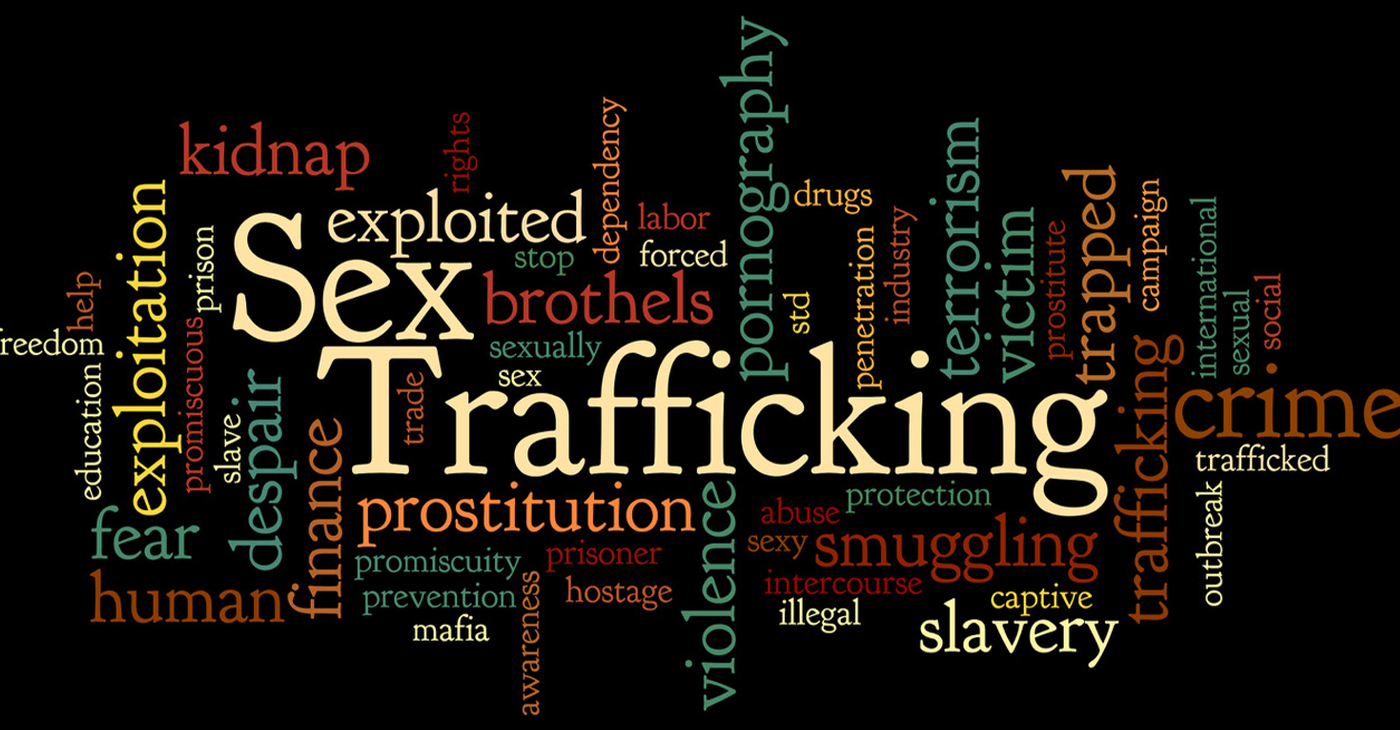Crime
California Now Has One of the Strongest Police Use-of-Force Laws in the Country

Thanks to the “Moral Strength” of Black Legislative Caucus Chair Shirley Weber Who Led Effort
On Monday, Gov. Gavin Newsom signed into law one of the strongest measures in the country intended to deter police officers from killing civilians while pursuing criminal suspects.
After a grueling yearlong process that survived bitter fights, tense negotiations and impassioned speeches, on July 18 the Senate voted 29-1 to pass AB 392, the California Act to Save Lives.
In May, law enforcement organizations, once staunch opponents of the bill, held a private meeting with the governor and members of the Legislature and reached common ground on some of the language in the legislation. Advocates of the bill said those amendments helped the bill gain wider support among members of the Assembly and Senate, many of whom were strongly opposed when the proposal was first introduced.
Assemblymember Shirley Weber (D-San Diego) introduced the legislation she co-authored with Assemblymember Kevin McCarty (D- Sacramento). Both lawmakers are African American.
Inspired, in part, by the 2018 shooting of Stephon Alonzo Clark, an unarmed 22-year-old African-American man, by police in Sacramento, the bill proposes changes to California’s penal code regarding “justifiable homicides” by “peace officers.” Its language requires cops to only use deadly force “in defense of human life” when a suspect poses an “imminent threat of death or serious bodily injury to themselves or others.”
Senate Pro Tem Toni Atkins (D-San Diego) championed the bill in the Senate.
“With so many unnecessary deaths, I think everyone agrees that we need to change how deadly force is used in California,” said Weber, who is also chair of the California Legislative Black Caucus. “We can now move a policy forward that will save lives and change the culture of policing in California.”
The bill, which was initially sponsored by the civil justice group Black Lives Matter (BLM), also calls for police officers to rely on training and exhaust all resources available to them, whenever possible, before shooting to kill. The bill defines “imminent harm” as a threat that must be “instantly confronted.” It rules out fear of future harm — no matter how great or likely the potential danger is.
In April, the “Act to Save Lives” cleared its first hurdle when the Assembly Public Safety Committee voted 5-2 in favor of the legislation.
Shortly after, state law enforcement groups —including the California Highway Patrol, the Peace Officers Research Association of California and the California State Sheriffs’ Association —announced that they had taken a neutral position and would no longer oppose the proposal after meeting with Gov. Newsom to smooth out differences.
When Weber presented the revised version of AB 392 with the input of the police groups, Black Lives Matter dropped its sponsorship.
“We knew that it would be an uphill battle, especially with police associations opposing the bill,” said Melina Abdullah, co-founder of the Los Angeles chapter of Black Lives Matter. “Unfortunately, in efforts to get law enforcement to lift their opposition, the bill was so significantly amended that it is no longer the kind of meaningful legislation we can support.”
In its original form, AB 392 explicitly redefined the state’s legal standard for police officers’ use of lethal force, replacing the description “reasonable” with “necessary.” Necessary force, it spelled out, is when “there is no reasonable alternative.”
Although the word “necessary” remains in the current language of the law, its definition has been omitted, leaving it up to the courts to determine on a case-by-case basis.
After the revisions, the bill now requires investigators and prosecutors to consider “the totality of circumstances” leading up to a police officer’s use of lethal force. Before the passing of AB 392, the law only took into account the immediate actions taken before the shooting.
This latest iteration of AB 392 also allows for the behavior of the suspect to be examined.
“This is an important bill, one that will help restore community trust in our criminal justice system,” said Newsom. “I would like to thank Assemblymember Weber, Senate Pro Tem Atkins, Speaker Rendon and our legislative leaders who all worked tirelessly to get us to this point.”
In California, there have been more incidents of police officers using lethal force against African Americans and Latinos than in any other state. In 2017 alone, police killed 172 civilians. Latinos made up a disproportionate 47.1 percent of that total number, and Blacks accounted for 15.1 percent.
“We are proud to stand with Assemblymember Weber in support of AB 392,” said Peter Bibring, Police Practices Director for The American Civil Liberties Union (ACLU) of California. The ACLU is a leading supporter of the legislation.
Bay Area
Justice for Henry Texada
Henry Texada was known as a leader, a role model, godfather, and a friend to all. He enjoyed mentoring younger members of his family and participants at the Boys and Girls Club. He was always giving and present in the lives of others with a kind word or suggestion. Henry used the skills gained at Youth Radio as a digital media photographer to inspire others. He wanted to learn as much as he could to be a supportive person for youth, so he enrolled at Laney College for the fall of 2020 for classes in Early Childhood Development. He was killed when several people exited a 2020 silver Nissan Armada and shot him around 2 p.m. on April 28, 2020, on 68th Avenue in East Oakland.

Family Seeks Justice for Murdered Son on Fourth Anniversary of His Death
Special to The Post
Henry Texada was known as a leader, a role model, godfather, and a friend to all. He enjoyed mentoring younger members of his family and participants at the Boys and Girls Club. He was always giving and present in the lives of others with a kind word or suggestion.
Henry used the skills gained at Youth Radio as a digital media photographer to inspire others. He wanted to learn as much as he could to be a supportive person for youth, so he enrolled at Laney College for the fall of 2020 for classes in Early Childhood Development.
He was killed when several people exited a 2020 silver Nissan Armada and shot him around 2 p.m. on April 28, 2020, on 68th Avenue in East Oakland. Police were able to recover the vehicle, which had been rented in Reno, Nev., but have been unable to solve the case.
Henry’s senseless murder continues to deeply impact his loved ones who are suffering from his loss.
“I hate the phrase passed away or died,” his mother says. “My son, Henry, was very protective of me, and we had a bond that could not be broken. I miss him so much.
“I hate April 28th because I feel Henry should be here, because he had a purpose helping others and working with youth. He was physically strong and had a plan, goals, and dreams. Henry had a smile that would light up the room. He is a wonderful son, brother, and uncle.”
“Instead of imploring you for information and help, I should be telling you about all the things he has achieved and all the people that he touched,” his mother said. “But instead, here I am praying for justice because a person who would take the shirt off his back for others was murdered.
“There is no word to describe this everyday pain for me. I expect him to text me at any moment because his favorite saying was “don’t say bye, say see you later.” It’s four years later and I can’t physically hold him,” his mother comcluded.
The Family Support Advocates join with Henry Texada’s grieving family and loved ones in their pursuit of justice. Anyone in the community with information about Henry’s murder is asked to contact the Homicide Section of the Oakland Police Department at (510) 238-3821 or the TIP LINE at (510) 238-7950. CrimeStoppers of Oakland is offering a reward for an arrest in this case. #JusticeforHenry.
FAMILY SUPPORT ADVOCACY TASK FORCE
The mission of the Family Support Advocacy Task Force, a committee of the Violence Prevention Coalition, is to advocate for local, state and federal policies and legislation to enhance and expand support to families and friends of those who experienced violence; for more compassionate and transparent communication between law enforcement, the district attorney with the family of homicide victims and to push for the elimination of all violence, but particularly gun violence and homicides.
Activism
Calif. Anti-Sex Trafficking Advocates Discuss Competing Bills, Strategies
Advocates from across California are challenging state officials and community leaders to support legislation that provides resources and services for survivors and victims of human trafficking, as well as assistance as they transition back into civil society. Some of those advocates are also calling for more effective state policy to curtail trafficking, a crime that has an outsized impact on Black children, particularly girls.

By Bo Tefu, California Black Media
Advocates from across California are challenging state officials and community leaders to support legislation that provides resources and services for survivors and victims of human trafficking, as well as assistance as they transition back into civil society.
Some of those advocates are also calling for more effective state policy to curtail trafficking, a crime that has an outsized impact on Black children, particularly girls.
According to the FBI, a report covering a two-year period found Black children accounted for 57% of all juvenile arrests for prostitution. In addition, 40% of sex trafficking victims were Black and 60% of those victims had been enrolled in the foster care system.
“It is time to hold the perpetrators who take advantage of our children accountable,” said the Rev. Shane Harris, a San Diego-based activist, former foster youth and founder of the Peoples Association of Justice Advocates, (PAJA), a national civil rights organization and policy think tank.
“It is time to send a thorough message that if you seek to buy a child for sex, you will pay the highest criminal penalties in this state,” added Harris who was speaking at a rally at the State Capitol earlier this month. Harris was speaking in support of Senate Bill 1414, authored by Sen. Shannon Grove (D-Bakersfield), which calls for people who buy sex from minors to be punished with a felony. The punishment includes a two-year prison sentence and a $25,000 fine.
Harris said the PAJA is the only civil rights organization in the state that supports SB 1414.
Harris urged other Black-led groups who favor anti-trafficking legislation more focused on criminal justice reforms (as opposed to stiffer penalties), to “join the movement.”
Many of those civil rights groups fear that SB 1414 could lead to the incarceration of more Black youth.
Those sentiments were echoed in a panel discussion organized by Black women advocates on April 26 to examine the cause and effects of human trafficking in California’s Black communities. The virtual event was hosted by the Forgotten Children, Inc, a faith-based nonprofit that advocates for survivors and victims of human trafficking through anti-trafficking campaigns and initiatives.
Panelists shared the psychological impact of sexual exploitation on youth and children in the long term.
Author and educator Dr. Stephany Powell shared statistics and information revealing that African American women and girls are the most trafficked nationwide.
Powell, who serves as the senior advisor on law enforcement and policy at the National Center on Sexual Exploitation said that national data indicates that sex trade survivors are disproportionately women of color. She stated that male survivors often go unnoticed because boys rarely report trafficked crimes.
Powell said that decriminalizing prostitution in California could increase human trafficking. She argued that Senate Bill 357, authored by Sen. Scott Wiener (D-San Francisco), which was signed into law in 2022 and legalized loitering for prostitution, caused a surge in street-level prostitution.
Panelist and psychologist Dr. Gloria Morrow shared opposing views on decriminalizing prostitution. She said that decriminalizing prostitution could help survivors gain access to state resources and support.
Despite opposing views, Powell and Morrow agree that the Black community needs resources and educational programs to address human trafficking.
Activism
Oakland Post: Week of May 1 – 7, 2024
The printed Weekly Edition of the Oakland Post: Week of May 1 – 7, 2024

To enlarge your view of this issue, use the slider, magnifying glass icon or full page icon in the lower right corner of the browser window. ![]()
-

 Community3 weeks ago
Community3 weeks agoFinancial Assistance Bill for Descendants of Enslaved Persons to Help Them Purchase, Own, or Maintain a Home
-

 Activism4 weeks ago
Activism4 weeks agoOakland Post: Week of April 3 – 6, 2024
-

 Business3 weeks ago
Business3 weeks agoV.P. Kamala Harris: Americans With Criminal Records Will Soon Be Eligible for SBA Loans
-

 Activism3 weeks ago
Activism3 weeks agoOakland Post: Week of April 10 – 16, 2024
-

 Community3 weeks ago
Community3 weeks agoAG Bonta Says Oakland School Leaders Should Comply with State Laws to Avoid ‘Disparate Harm’ When Closing or Merging Schools
-

 Community2 weeks ago
Community2 weeks agoOakland WNBA Player to be Inducted Into Hall of Fame
-

 Community2 weeks ago
Community2 weeks agoRichmond Nonprofit Helps Ex-Felons Get Back on Their Feet
-

 Community2 weeks ago
Community2 weeks agoRPAL to Rename Technology Center for Retired Police Captain Arthur Lee Johnson












































